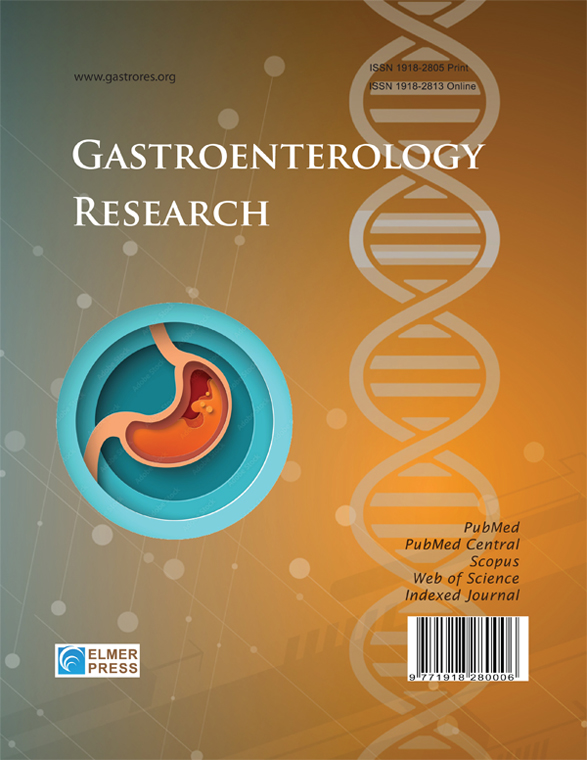Risk Factors Predicting Outcomes in Advanced Upper Gastrointestinal Cancers Treated With Immune Checkpoint Inhibitors
DOI:
https://doi.org/10.14740/gr1768Keywords:
Immune checkpoint inhibitors, Esophageal cancer, Gastric cancer, Immunotherapy, Biomarkers, Prognostic marker, ImmunotherapyAbstract
Background: Immune checkpoint inhibitors (ICIs) have moved to the frontline in recent years to manage upper gastrointestinal (UGI) tumors, such as esophageal and gastric cancers. This retrospective review sheds light on real-world data on ICI-treated UGI tumors to identify risk factors (clinical and pathological) impacting the outcome other than traditional biomarkers (programmed cell death ligand 1 (PD-L1) or microsatellite instability status).
Methods: Patients with UGI tumors who received at least one dose of ICI for stage IV or recurrent disease between January 1, 2015, and July 31, 2021, at The Ohio State University were included in the study. The patients’ baseline characteristics, labs, and blood counts (even at disease progression) were extracted with survival outcomes (progression-free survival (PFS) and overall survival (OS)). Descriptive statistics, log-rank test and Cox proportional hazard model for survival outcomes, Fisher exact test for categorical variables, were conducted using JMP Pro 16 (SAS Institute Inc., Cary, NC).
Results: We had 64 patients (84% males) included in the study, with the racial distribution as follows: 88% Caucasian, 5% African American, 1% Asian, and 6% from other racial groups. Men and the use of ICI in third lines or more had a positive impact on PFS and OS. For OS, 1) history of surgery positively impacted the outcome, while bone metastases worsened it; 2) baseline red blood cell count (RBC), hemoglobin, and thyroid-stimulating hormone (TSH) negatively impacted the OS. For PFS, 1) PD-L1 positivity, baseline lymphocyte count, and aspartate transferase levels had a positive impact; 2) human epidermal growth factor receptor 2 (HER2) positivity, baseline RBC, TSH, alkaline phosphatase, and alanine transferase (AST) levels had a negative impact. A slight increase in white blood cell (WBC) count (by 1.54, P = 0.02) and a drop in lymphocyte count (by 0.1907, P = 0.003) was significantly associated with disease progression.
Conclusions: Baseline risk factors and monitoring blood counts can help predict outcomes in ICI-treated UGI tumors. We need larger studies to confirm this.

Published
Issue
Section
License
Copyright (c) 2024 The authors

This work is licensed under a Creative Commons Attribution-NonCommercial 4.0 International License.









